Female hormones have the ability to affect a woman’s health from monthly migraines and mood disturbances to acne and increased energy. Because of the moment-by-moment fluctuations in the female sex hormones estrogen and progesterone, together they can cause a myriad of health issues in women.
Have you ever noticed that your gums are increasingly more sensitive around your cycle? Or perhaps you’ve even scheduled with your local dentist around this time because you thought you had a cavity, only to mistake it and find that your hormones were the culprit of your oral panic!
Find out how hormones influence your oral health in each stage of life.
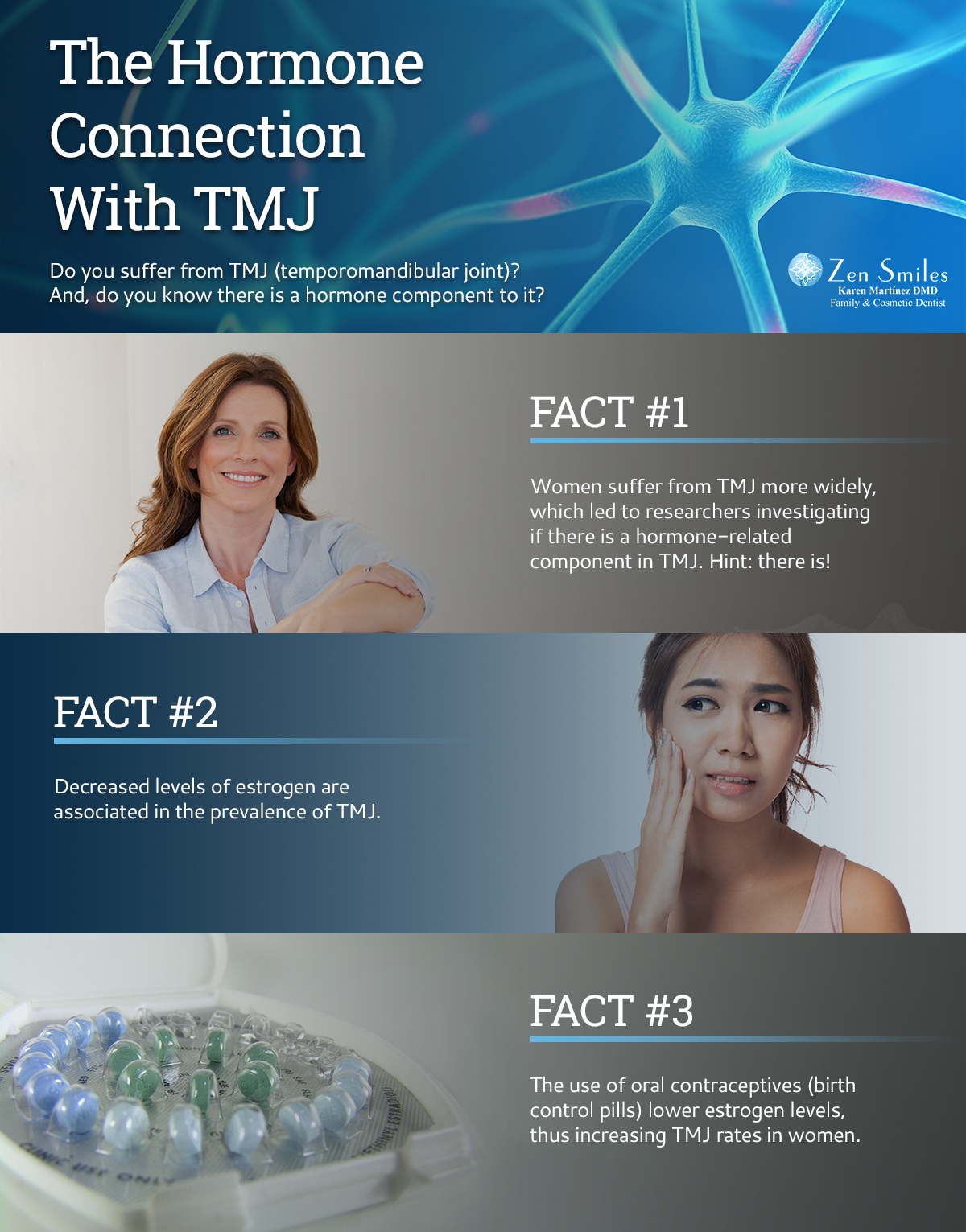
How your hormones can land you in your local dentist office
Hormones affect your oral health because these fluctuations can increase or decrease the blood supply to the gums, as well as how your body responds to toxins in correlation to plaque. Because hormones play such a wide and vast role in women’s health, they can directly leave women more susceptible to oral health issues such as periodontal disease.
How hormones influence oral health through the stages
Hormones may always affect a woman’s health but in terms of oral health, there are specific stages where hormones are the most abundant and active.
 Puberty – Puberty presents a host of changes, but mainly a flood of sex hormones throughout the body. The fast influx of estrogen and progesterone affects a woman’s gums by increasing blood flow to the tissue leaving it tender, swollen, and somewhat red. Because of the increased inflammation to the gums, it may cause the gums to bleed more readily during brushing and flossing.
Puberty – Puberty presents a host of changes, but mainly a flood of sex hormones throughout the body. The fast influx of estrogen and progesterone affects a woman’s gums by increasing blood flow to the tissue leaving it tender, swollen, and somewhat red. Because of the increased inflammation to the gums, it may cause the gums to bleed more readily during brushing and flossing.- Pregnancy – Similar to puberty, during pregnancy hormones rapidly fluctuate. Pregnant women are prone to a condition called pregnancy gingivitis and as a result of increased progesterone can have increased plaque buildup. The condition causes swollen and bleeding gums, so getting a routine dental cleaning early in a pregnancy can help reduce the risk of getting it.
- Menopause – As women age, they are at risk for many other health issues and often have to combat it with medication. The combination of medications and decreased hormones, can leave a woman with dry mouth, burning mouth, and increased sensitivity to extreme temperatures in food and beverages. With the decrease of estrogen during menopause this causes contributes to bone loss which can affect her oral health and make her more susceptible to periodontitis.
Other hormonal influences
Both a woman’s menstrual cycle and oral contraceptives factor into the state of her oral health. A woman can experience inflamed, bleeding, and red gums, canker sores, and swollen salivary glands during her monthly cycle, and can cause what’s referred to as “menstrual gingivitis” and clears after her period has started.
Birth control pills can also cause swollen gums when they are first started, but because they help balance hormones, they can help reduce the inflammatory response in gums.
Zen Smiles – your local dentist
Whatever stage of life you’re in, at Zen Smiles we want to help address any oral health issues you have related to fluctuating hormone levels! And, we’re always here for a routine dental cleaning!
Schedule with us today!

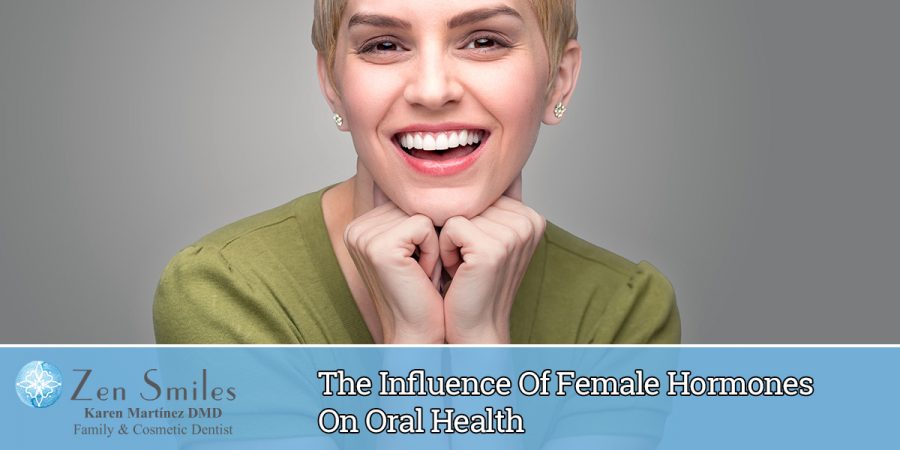
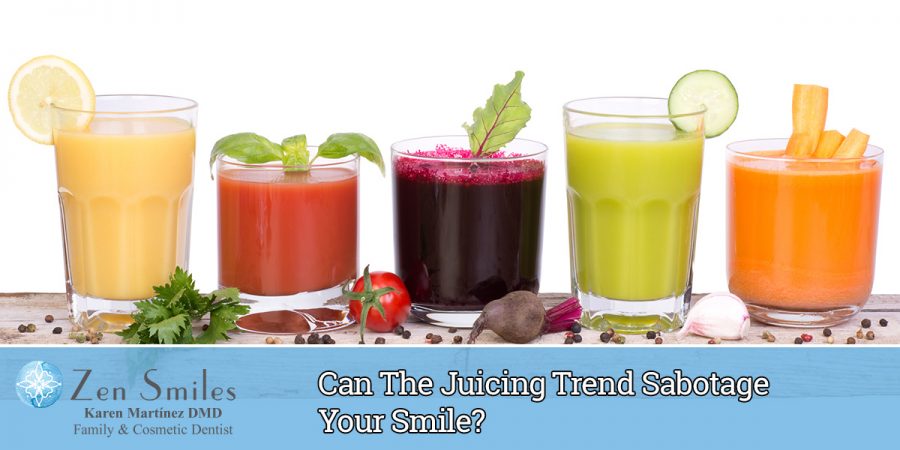
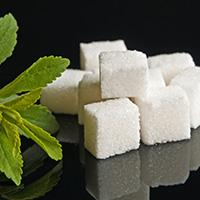 Juice Bars and Your Teeth
Juice Bars and Your Teeth
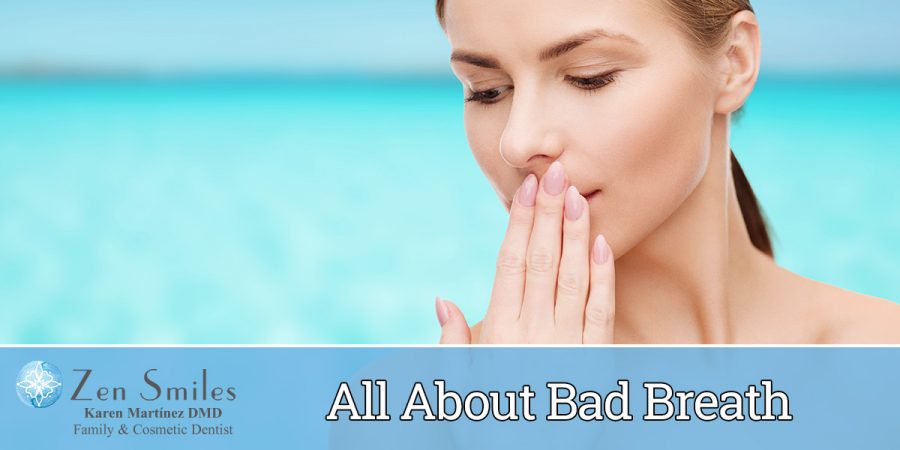
 The most important piece of treating bad breath is finding the root cause of it. If you have chronic coffee breath, it can be as simple as drinking water alongside your coffee or rising your mouth when you’re finished drinking it. If you love garlic and onions, yet they cause bad breath, you may just have to accept that you’ll smell like them! For temporary relief, chewing gum, mints, and breath spray are very helpful is masking foul smells.
The most important piece of treating bad breath is finding the root cause of it. If you have chronic coffee breath, it can be as simple as drinking water alongside your coffee or rising your mouth when you’re finished drinking it. If you love garlic and onions, yet they cause bad breath, you may just have to accept that you’ll smell like them! For temporary relief, chewing gum, mints, and breath spray are very helpful is masking foul smells.
Recent Comments